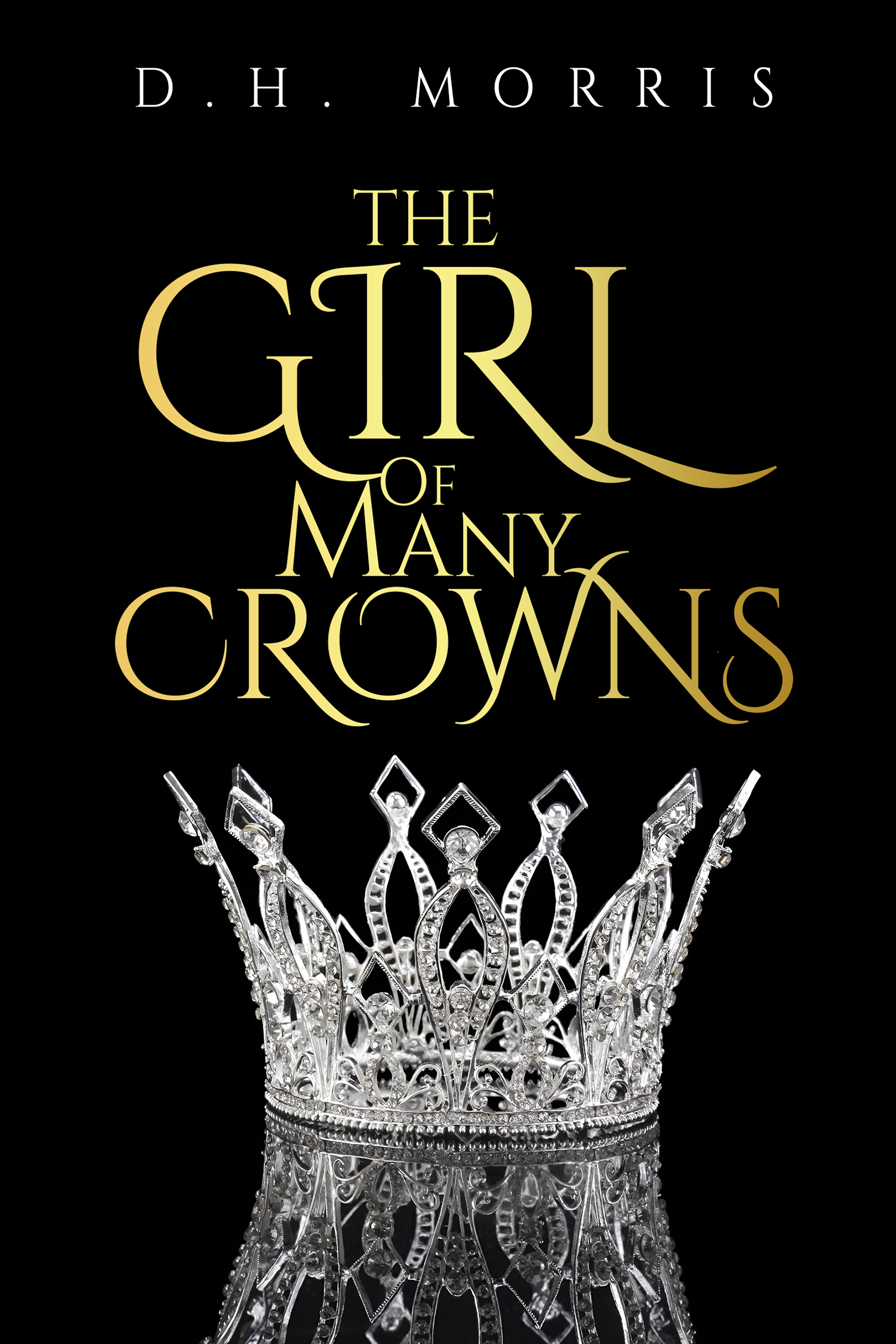
In this post, we'll be diving deeper into the fascinating life of Judith of Francia, a woman who defied expectations and wielded considerable power in a turbulent medieval world. This topic was inspired by our recent episode, The Girl of Many Crowns: D.H. Morris Makes History Personal, where we spoke with author D.H. Morris about her historical novel centered on Judith and Baldwin "Iron Arm." We explored how Morris transformed historical records into a vivid story of love, power, and rebellion, making the past feel incredibly relevant. So, let's delve into the historical context and explore the life of this remarkable woman.
Judith of Francia - A Medieval Woman of Power
The Medieval Ages, often portrayed as a time of male dominance and limited opportunities for women, held within it stories of incredible women who challenged those very notions. Judith of Francia stands out as a prime example. She was not merely a passive figure in history but an active participant, leveraging her royal lineage, strategic marriages, and sheer force of will to navigate a world dominated by kings and councils.
Judith's story is a compelling narrative of agency and defiance. She wasn't simply a pawn in dynastic power plays; she actively shaped her own destiny, sometimes in ways that shocked and scandalized her contemporaries. Her life serves as a reminder that even within the constraints of a rigid social structure, individuals could carve out their own paths and leave an indelible mark on history.
Who Was Judith of Francia?
Judith of Francia was a princess of the Frankish Empire, born in the early 9th century. She was the daughter of Charles the Bald, King of West Francia and Holy Roman Emperor, a lineage that placed her at the very heart of European power. Her royal blood made her a valuable asset in the political landscape, a bargaining chip in the complex game of alliances and rivalries that defined the medieval world.
However, Judith was more than just a princess by birth. She possessed a sharp intellect, a strong will, and a keen understanding of the political dynamics of her time. These qualities allowed her to not only survive but to thrive in a world where women were often relegated to the sidelines. She used her position to influence events, challenge conventions, and ultimately, to leave a lasting legacy.
Judith's story is intertwined with the major events and figures of her era. From Viking raids to the complex power struggles within the Carolingian dynasty, she was at the center of it all. Understanding the historical context in which she lived is crucial to appreciating the full scope of her achievements and the challenges she faced.
D.H. Morris's Journey to Uncover Judith's Story
As we discussed in the podcast episode with D.H. Morris, the journey to uncover Judith's story was itself a fascinating one. Morris's initial interest was sparked by genealogical research, a personal quest to trace her own family history. This exploration led her down a path of medieval annals, court records, and even fragments of songs and poems, all of which hinted at the remarkable life of Judith of Francia.
Morris's dedication to historical accuracy is evident in her work. She meticulously researched primary sources, piecing together fragments of information to create a comprehensive and compelling narrative. But she also recognized the limitations of historical records, the gaps in the story that needed to be filled with informed speculation and creative imagination.
The process of transforming historical research into a work of historical fiction is a delicate balancing act. Morris successfully navigated this challenge, staying true to the known facts while also breathing life into the characters and events. She brought Judith of Francia to life, not just as a historical figure but as a complex and relatable human being.
Marriages, Defiance, and Agency in a World of Kings
Judith's marital life was anything but conventional. Her first marriage was to Aethelwulf, King of Wessex, a union orchestrated for political gain. She was a young woman marrying a much older man, and the cultural differences between the Frankish court and the Anglo-Saxon kingdom must have been significant.
Upon Aethelwulf's death, Judith defied expectations by selling her possessions and returning to the continent. She then married her stepson, Aethelbald, an act that shocked many and challenged the norms of the time. This marriage, though short-lived, demonstrated Judith's willingness to flout convention and assert her own desires.
Her third marriage, to Baldwin I, Count of Flanders, was perhaps her most audacious act. Baldwin abducted Judith, and they fled to the protection of Lothair I, defying her father, Charles the Bald. This act of rebellion not only challenged the authority of the king but also established Baldwin as a powerful figure in his own right. Judith's agency in choosing her own husband, even through unconventional means, solidified her reputation as a woman who refused to be controlled.
Vikings, Ransoms, and Realpolitik: Shaping Judith's World
The 9th century was a period of intense upheaval and change in Europe. Viking raids were a constant threat, disrupting trade, terrorizing communities, and shaping the political landscape. Ransoms were a common practice, as powerful figures were often captured and held for large sums of money. This reality of ransoms and realpolitik played a crucial role in Judith's decisions and actions.
The Carolingian dynasty, which had once dominated Europe, was beginning to fragment, with power struggles and internal conflicts weakening its authority. These political rivalries created opportunities for ambitious individuals like Judith and Baldwin to assert their influence and carve out their own domains.
Judith was very much in the thick of this world. She was well aware of the threats posed by the Vikings, the importance of alliances, and the ruthless nature of medieval politics. Her decisions, while sometimes appearing impulsive, were often carefully calculated to maximize her own power and security in a dangerous and unpredictable world.
Historical Fiction vs. Strict History: Filling the Gaps
One of the key topics we explored with D.H. Morris in the podcast episode was the distinction between historical fiction and strict historical record. While historical fiction strives for accuracy, it also takes liberties to fill in the gaps in the historical record and create a more compelling narrative. This involves imagining the thoughts, feelings, and motivations of historical figures, something that is impossible to know with certainty.
Morris emphasized the importance of staying true to the known facts while also allowing for creative interpretation. She used primary sources as a foundation for her novel but also drew on her understanding of medieval culture, social norms, and human psychology to create believable characters and scenarios.
This approach raises important questions about the nature of historical truth. Can historical fiction ever truly capture the reality of the past? Or is it always a product of the present, shaped by the perspectives and biases of the author? These are questions that historians and writers of historical fiction continue to grapple with.
Judith's Enduring Legacy
Judith of Francia's life was a testament to her resilience, intelligence, and determination. She defied expectations, challenged conventions, and ultimately, shaped her own destiny in a world that often sought to control her. Her story continues to resonate today, reminding us that even in the most restrictive of circumstances, individuals can find ways to assert their agency and make their mark on the world.
Judith's legacy extends beyond her own lifetime. Her descendants played significant roles in European history, and her story has been retold and reinterpreted throughout the centuries. She has become a symbol of female empowerment, a reminder that women have always been active participants in history, even when their stories have been marginalized or overlooked.
D.H. Morris's novel, The Girl of Many Crowns, is just one example of how Judith's story continues to inspire and captivate audiences today. By bringing her story to life, Morris has ensured that Judith of Francia will continue to be remembered as a powerful and influential figure in medieval history.
We hope you've enjoyed this deeper dive into the world of Judith of Francia. Be sure to check out our full conversation with D.H. Morris in The Girl of Many Crowns: D.H. Morris Makes History Personal for more insights and perspectives on this incredible woman. Until next time, keep exploring the fascinating stories of the past!










